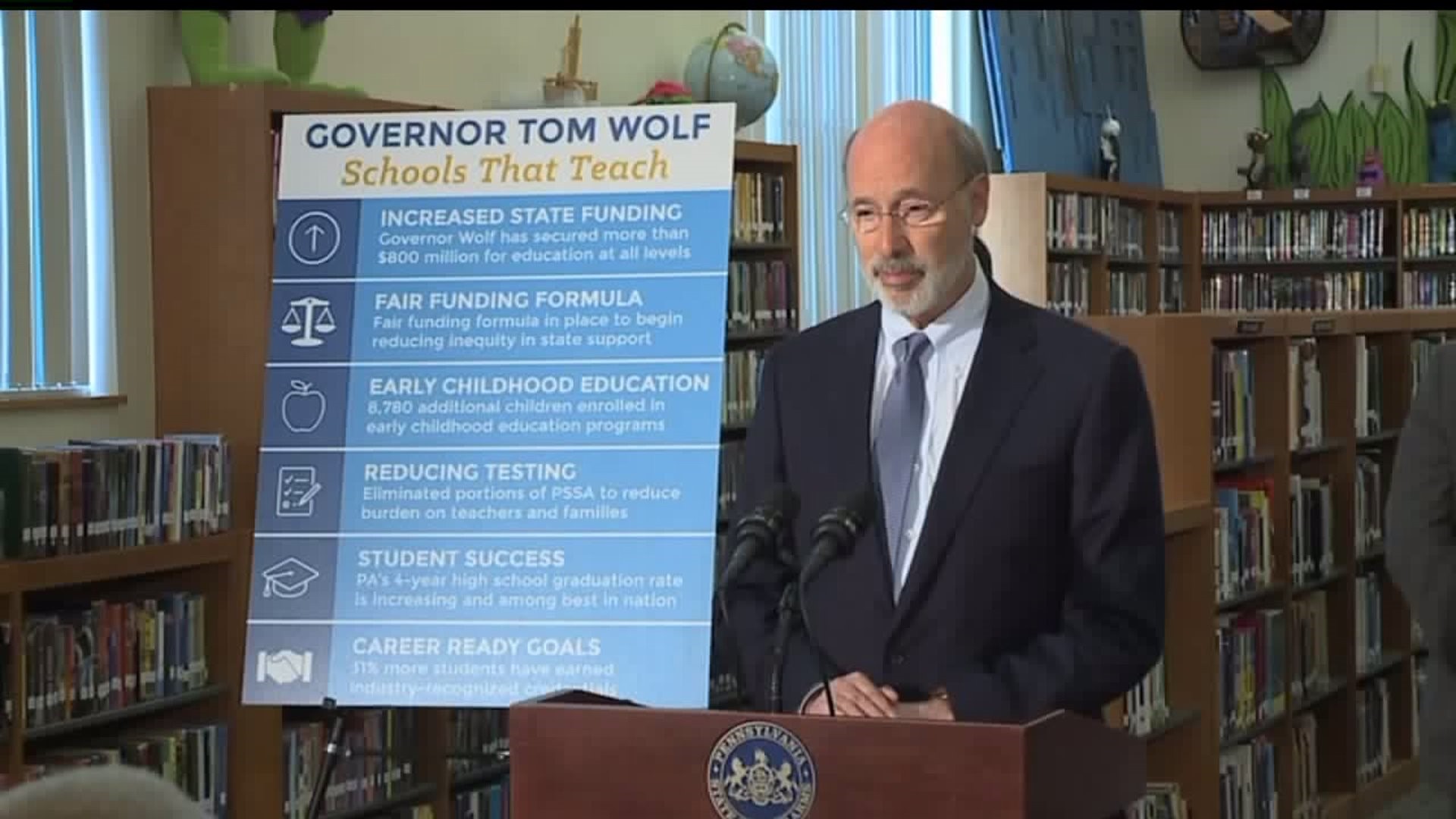SUSQUEHANNA TOWNSHIP, DAUPHIN COUNTY, Pa.-- As kids get ready to head back to school, many students can expect standardized testing to be part of their curriculum.
Many educators, parents, and students have complained that the amount of time spent on Pennsylvania's standardized tests doesn't make the grade.
This school year, students statewide will be put to the test, but they'll be putting their pencils down a little bit sooner than before.
Pennsylvania students spend at least 180 days in school, but some say there are times when that's too much of a good thing.
Steelton-Highspire school district superintendent Travis Waters said "over the years I've heard parents, teachers, administrators, and students voice concern over the amount of time that we spend on standardized tests."
Executive director of PA association of school administrators Dr. Mark DiRocco said "most schools experience more than a month of disruption in preparation activities, administration of the test, and scheduling make up sessions for these exams."
It's what drove Governor Tom Wolf and Pennsylvania educators to come up with a solution to the problem.
Gov. Wolf said "students in third to eighth grade will spend an average of 20 percent less time on testing. Students below those grades will spend an average of 25 percent less time on testing. All this change will results in a reduction of two full testing days for some schools."
"The new ESSA plan calls for the PSSA English language arts test to be reduced from four testing sessions to three, and the math test reduced from three testing sessions to two," DiRocco said.
Some may question whether subtracting the number of tests taken add up to success for students.
Lower Dauphin School District superintendent Sherri Smith said "I actually think you'll get a better snapshot of what our students can do, just because their not worn down from the amount of testing that they have to do, day after day."
Pennsylvania education secretary Pedro Rivera said "I have a middle schooler, and a daughter who will be going into first grade soon, and so I not only looked at this through the lens of an educator and policy maker, but I looked at this through the lens of a parent."
The goal is that schools will focus on more than just the results of one test.
Office of Elementary and Secondary Education deputy secretary Matthew Stem said "different schools take different approaches, but we believe that if we design the test appropriately, teachers shouldn't have to teach to the test, the assessments should naturally measure learning that's occurring in classrooms."
"Your curriculum in your district should be established in such a way that the instruction leads up to these tests, so it's not actually stopping your instruction a month before the testing to prepare for it, but it's something you're preparing the students all year long," Smith said.
Proponents believe the changes should make a difference to students and teachers.
"I actually think you'll get a better snapshot of what our students can do, just because their not worn down from the amount of testing that they have to do, day after day," Smith said.
"We're going to try to offer the tests later in the school year, which allows more instructional time before students are actually assessed. I think coupled together, those two will have a positive impact on the quality of teaching for teachers and quality of learning for students,"'Rivera said.
Whether the changes will make a difference, only time will tell, but the state has a few criteria to follow up with students to see if there is any improvement.
"Reading level attainment, math level attainment, attendance, it's going to give a better measure of what's happening in the classroom," Rivera said.

